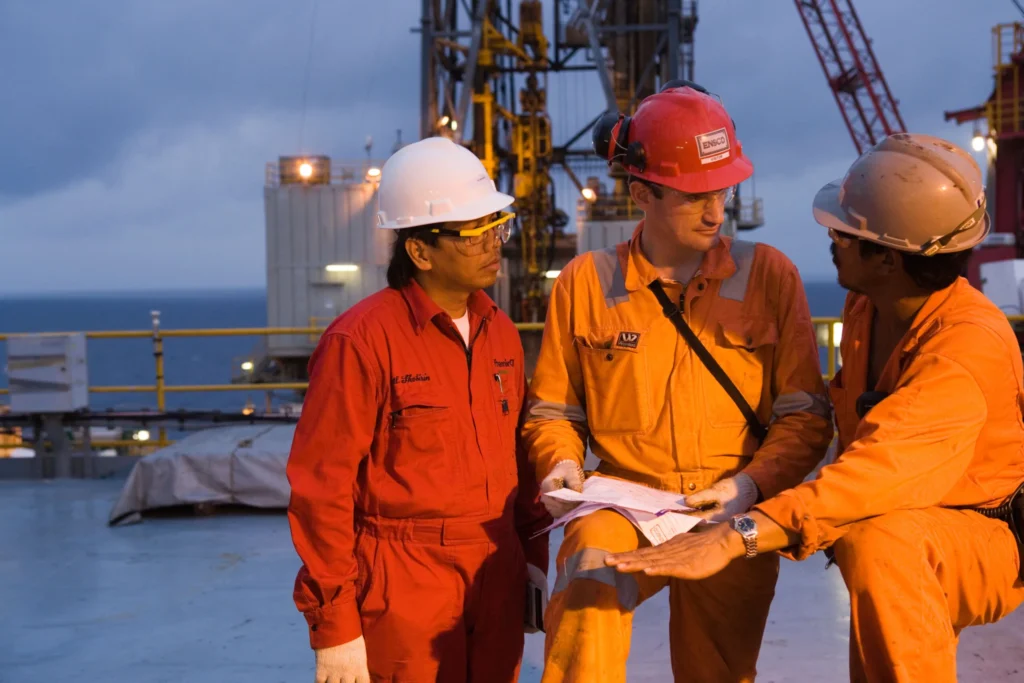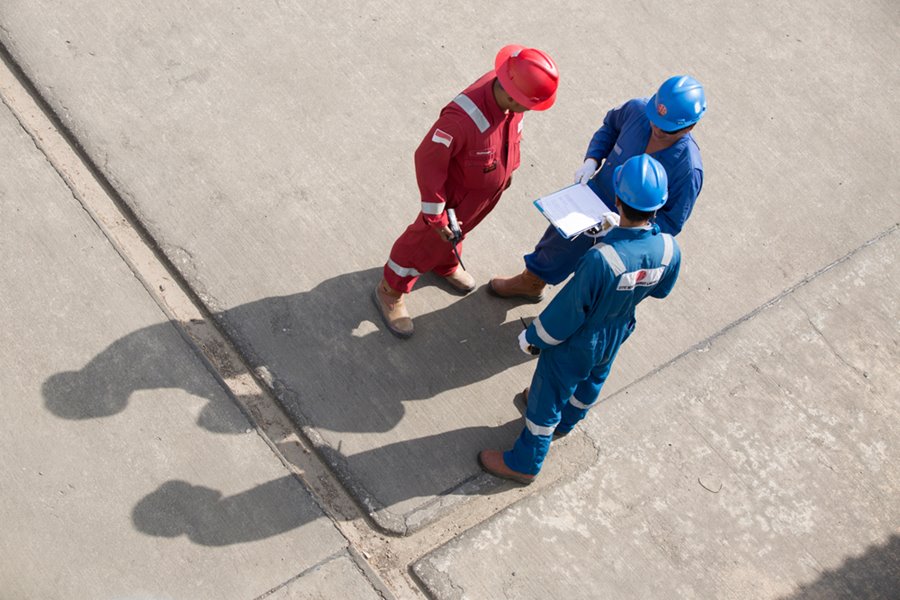Introduction
Kuwait Foreign Petroleum Exploration Company (KUFPEC), a subsidiary of Kuwait Petroleum Corporation (KPC), is significantly expanding its footprint in Indonesia’s oil and gas sector. This strategic initiative aligns with Indonesia’s objectives to enhance local production, boost energy security, and reduce dependence on imports.
As global energy markets shift and Southeast Asia continues to grow as a key player in the oil and gas industry, companies like KUFPEC are seizing the opportunity to expand in resource-rich regions. Indonesia, with its vast reserves and commitment to economic development, presents an attractive investment opportunity for foreign energy firms. KUFPEC’s expansion in the country is expected to strengthen Kuwait-Indonesia relations while contributing to the overall growth of the region’s energy sector.
Strategic Acquisitions and Partnerships
In 2024, KUFPEC, in collaboration with Indonesia’s PT Pertamina Hulu Energi and China’s Sinopec, secured the Melati Block during Indonesia’s Direct Offer Tender Bid Round I. This acquisition marks a significant milestone in KUFPEC’s ongoing strategy to expand in high-potential markets.
The Melati Block, located in the offshore region of Sulawesi, covers an extensive area of approximately 8,453.70 square kilometers. Initial assessments suggest that the block contains substantial reserves, estimated at around 850 million barrels of oil and 4.7 trillion cubic feet of natural gas. The block’s potential has attracted the attention of major global energy players, and KUFPEC’s involvement signals its confidence in Indonesia’s resource prospects.

The consortium of KUFPEC, Pertamina, and Sinopec has committed to an initial investment of at least $12.7 million for exploration activities over the next three years. The work plan includes extensive geological and geophysical studies, 200 km² of 3D seismic surveys, and 250 km of 2D seismic surveys to determine the full extent of the reserves.
KUFPEC’s Chief Executive Officer, Mohammed Al-Haimer, emphasized that these acquisitions align with the company’s long-term strategy to expand its upstream exploration and production activities in Southeast Asia. According to Al-Haimer, Indonesia remains a key focus for KUFPEC due to its abundant natural resources and supportive investment climate.
Expansion in the Natuna Sea
KUFPEC has been actively exploring opportunities in Indonesia’s Natuna Sea, a region with some of the largest untapped gas reserves in the world. The company currently holds a participating interest in Natuna Block A, which supplies gas to Singapore, and the Anambas Block, where a new oil and gas reservoir was discovered in 2022.
The Anambas-2X well, drilled to a total depth of 3,200 meters in 88 meters of water, marked KUFPEC’s first offshore exploration discovery in Indonesia. Following the discovery, KUFPEC launched a pre-front-end engineering and design (pre-FEED) study to assess various development options for the block. The results of these studies will determine the next phase of investment and production planning for the field.
In addition to the Anambas Block, KUFPEC has expressed interest in the Natuna D-Alpha gas block, one of the largest undeveloped gas resources globally. The block is estimated to hold approximately 230 trillion cubic feet of gas, making it an attractive target for development. However, the high carbon dioxide content of the gas presents a significant challenge. Developing the Natuna D-Alpha block will require the use of advanced carbon capture and storage (CCS) technologies to reduce environmental impact and comply with global sustainability standards.
Indonesia’s government has been actively encouraging foreign investments to develop the Natuna region’s resources, and KUFPEC’s involvement could play a critical role in unlocking the full potential of this strategic energy hub.
Investment Plans and Economic Impact
In early 2025, KUFPEC announced plans to invest up to $10 billion in Indonesia’s oil and gas sector over the coming years. This investment represents a major boost to Indonesia’s economy and signals strong confidence in the country’s energy industry.
The Indonesian government has welcomed KUFPEC’s investment, emphasizing that it will help modernize infrastructure, increase energy production, and create thousands of new jobs. According to Indonesia’s Ministry of Energy and Mineral Resources, the first phase of investment will involve an initial capital injection of $1 billion, which will be used to accelerate exploration and production efforts in key blocks.
Indonesian President Prabowo Subianto, who took office in October 2024, has prioritized increasing domestic oil and gas production to reduce Indonesia’s reliance on imports. His administration has introduced a series of reforms aimed at attracting foreign investment, including offering dozens of new oil and gas blocks to international investors. KUFPEC’s entry into the market is a testament to Indonesia’s success in creating a business-friendly environment for energy companies.
The long-term economic benefits of KUFPEC’s investment are expected to be substantial. Increased oil and gas production will strengthen Indonesia’s energy security, reduce the national trade deficit, and provide essential revenues for further economic development. The job creation resulting from these projects will also have a positive social impact, benefiting local communities in oil-rich regions.
Challenges and Environmental Considerations
Despite the economic opportunities presented by KUFPEC’s expansion in Indonesia, the company faces several challenges, particularly in the area of environmental sustainability. The high carbon dioxide content of some Indonesian gas fields, particularly the Natuna D-Alpha block, poses a significant technical and environmental challenge.
To address these concerns, KUFPEC is expected to invest in cutting-edge CCS technologies to capture and store carbon emissions generated during production. This approach aligns with Indonesia’s commitment to reducing its carbon footprint while maintaining energy security. The implementation of environmentally friendly production methods will be crucial in ensuring that Indonesia meets its climate goals while continuing to develop its natural resources.
Another challenge facing KUFPEC and other foreign investors is regulatory uncertainty. While Indonesia has made significant progress in improving its investment climate, bureaucratic hurdles and shifting policies can still pose risks for long-term projects. Industry experts suggest that continued cooperation between the government and international companies will be essential in overcoming these challenges and ensuring a stable regulatory environment.
Conclusion
KUFPEC’s expansion in Indonesia marks a significant milestone in the company’s broader strategy to strengthen its presence in Southeast Asia. By securing key exploration blocks, forming strategic partnerships, and committing substantial investments, KUFPEC is positioning itself as a major player in Indonesia’s energy sector.
The deepening economic ties between Kuwait and Indonesia will not only benefit both nations but also contribute to the overall development of Southeast Asia’s energy landscape. As Indonesia continues to attract foreign investment in its oil and gas sector, partnerships like the one with KUFPEC will be crucial in achieving the country’s long-term energy and economic goals.
With major discoveries, growing investment, and a focus on sustainability, KUFPEC’s role in Indonesia is set to expand even further in the years ahead. As the company navigates challenges and opportunities, its success in the region could serve as a model for other energy firms looking to invest in emerging markets.
Kuwait’s New Visa Policy: Domestic Workers Permitted to Transfer to Private Sector



